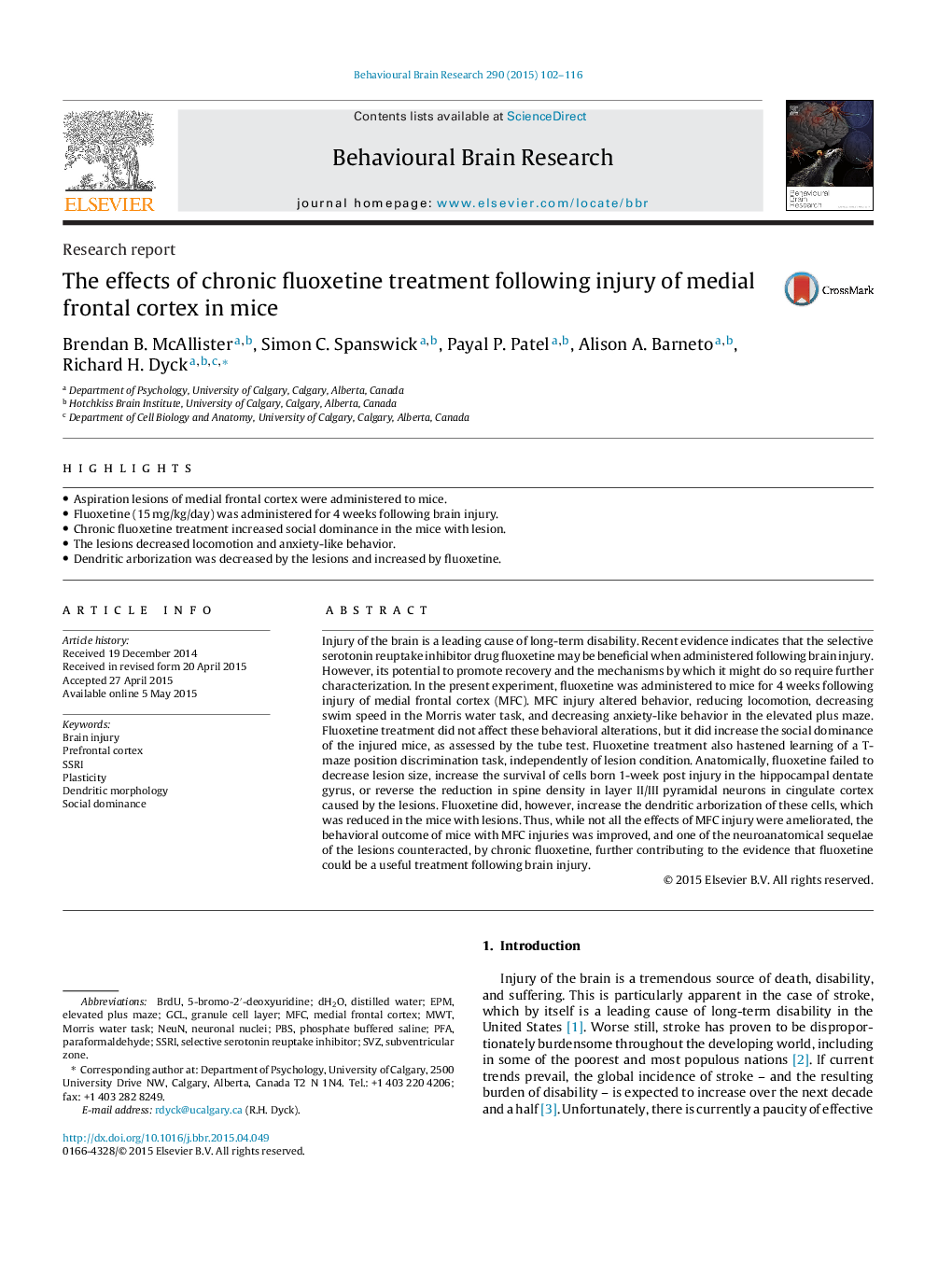| کد مقاله | کد نشریه | سال انتشار | مقاله انگلیسی | نسخه تمام متن |
|---|---|---|---|---|
| 6256668 | 1612942 | 2015 | 15 صفحه PDF | دانلود رایگان |

- Aspiration lesions of medial frontal cortex were administered to mice.
- Fluoxetine (15Â mg/kg/day) was administered for 4 weeks following brain injury.
- Chronic fluoxetine treatment increased social dominance in the mice with lesion.
- The lesions decreased locomotion and anxiety-like behavior.
- Dendritic arborization was decreased by the lesions and increased by fluoxetine.
Injury of the brain is a leading cause of long-term disability. Recent evidence indicates that the selective serotonin reuptake inhibitor drug fluoxetine may be beneficial when administered following brain injury. However, its potential to promote recovery and the mechanisms by which it might do so require further characterization. In the present experiment, fluoxetine was administered to mice for 4 weeks following injury of medial frontal cortex (MFC). MFC injury altered behavior, reducing locomotion, decreasing swim speed in the Morris water task, and decreasing anxiety-like behavior in the elevated plus maze. Fluoxetine treatment did not affect these behavioral alterations, but it did increase the social dominance of the injured mice, as assessed by the tube test. Fluoxetine treatment also hastened learning of a T-maze position discrimination task, independently of lesion condition. Anatomically, fluoxetine failed to decrease lesion size, increase the survival of cells born 1-week post injury in the hippocampal dentate gyrus, or reverse the reduction in spine density in layer II/III pyramidal neurons in cingulate cortex caused by the lesions. Fluoxetine did, however, increase the dendritic arborization of these cells, which was reduced in the mice with lesions. Thus, while not all the effects of MFC injury were ameliorated, the behavioral outcome of mice with MFC injuries was improved, and one of the neuroanatomical sequelae of the lesions counteracted, by chronic fluoxetine, further contributing to the evidence that fluoxetine could be a useful treatment following brain injury.
Journal: Behavioural Brain Research - Volume 290, 1 September 2015, Pages 102-116